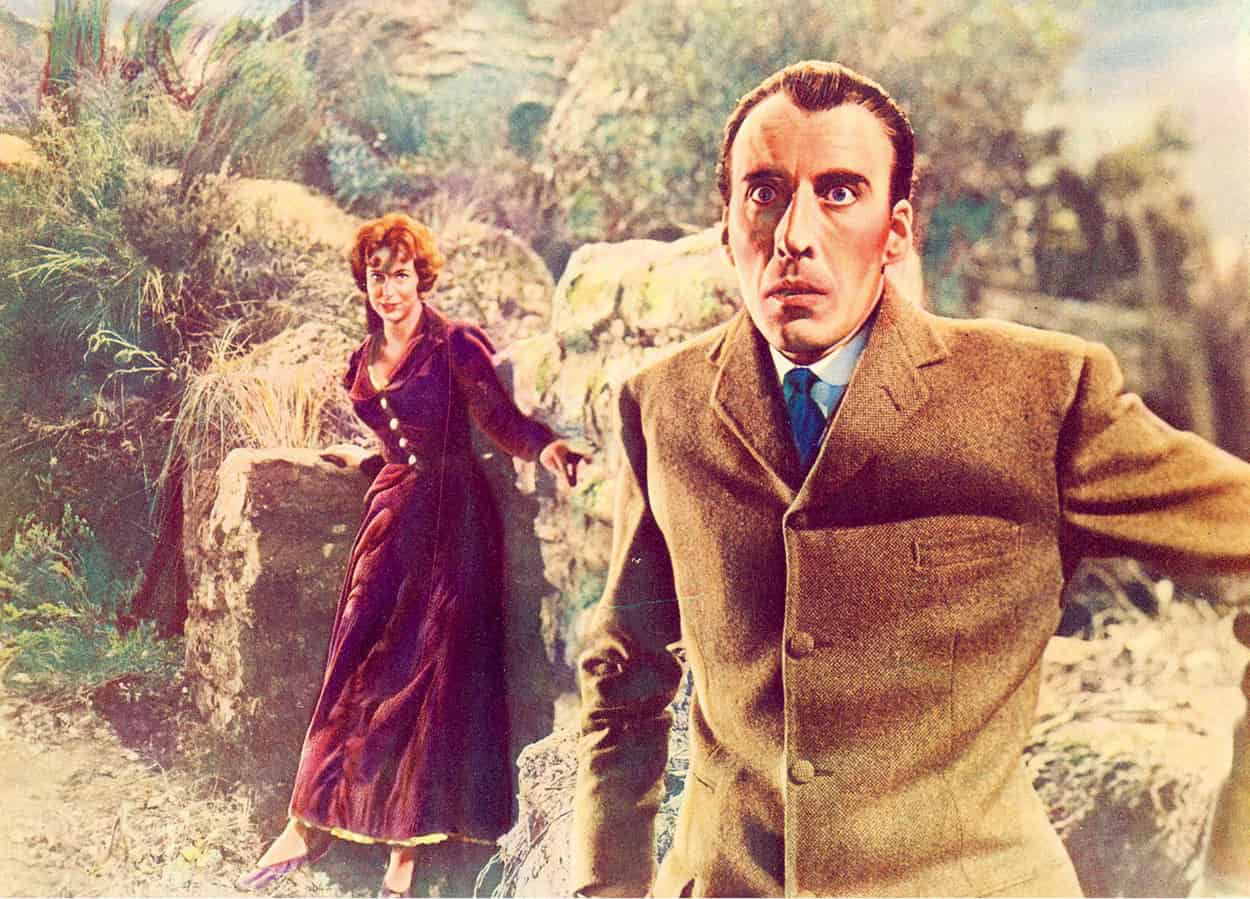Soft light and outstanding landscapes have long provided fuel for the creative mind. They have also given Devon a literary heritage that’s fun to follow as you tour the county.

Fear stalks the Moors as Christopher Lee confronts the Hound of the Baskervilles
Ronald Grant Archive
Homegrown talent
One of the most enduring classics of the county is RD Blackmore’s highly romantic Lorna Doone, published in 1869, much filmed and never out of print. This 17th-century epic has given a new label to the upper East Lyn – the Doone Valley. Blackmore had the valley of Lank Combe in mind as the home of his outlaw family, the Doones (based on real Exmoor outlaws, the Gubbins), although the Malmsmead valley has since taken over the title.
Also a strong crowd-puller – even bringing the Japanese to Torquay – is Britain’s most prolific author, Agatha Christie. Born in Torquay in 1890, Christie spent much of her lifetime in the area. She wrote two of her books while staying in the Art Deco hotel on Burgh Island. Her house, Greenway (for more information, click here), on the banks of the Dart, is pointed out by pleasure-boat captains and there are exhibitions devoted to the writer in Torre Abbey and Torquay Museum.
Charles Kingsley, author of The Water Babies, was born in the Dartmoor village of Holne in 1819, although he is more closely associated with the North Devon coast, particularly Clovelly, where his father was vicar, and Bideford, where the name Westward Ho! is named after one of his books.
Samuel Taylor Coleridge was born in 1772 in Ottery St Mary, where his father was rector, and although he spent most of his life elsewhere, he never lost his Devon accent. In later years the poet Robert Southey and Coleridge would carouse in the Ship Inn at Porlock Weir; and it was an unknown person from Porlock who so rudely interrupted the narrator in Kubla Khan.
John Gay, poet and author of the Beggar’s Opera, was born in Barnstaple in 1685, and went to school in the charismatic St Anne’s Chapel, where a small exhibition preserves some of the atmosphere of the time.
Inspiring Devon
Many more giants of literature came here seeking inspiration. Arthur Conan Doyle visited Dartmoor, and used the name of his coachman-guide – Baskerville – in The Hound of the Baskervilles. Rudyard Kipling based Stalky and Co on his college life in Bideford.
Other writers and poets simply used Devon as a peaceful place for the creative process. Evelyn Waugh wrote Brideshead Revisited while staying in a hotel near Chagford, and John Galsworthy wrote The Forsyte Saga while living on a farm at Manaton, on the eastern side of Dartmoor.
In tourism terms, the biggest impact has been made by Henry Williamson, who came to settle in Georgeham, near Croyde. His are the most telling footprints on the landscape, thanks to the book and film of Tarka the Otter. Much of Mid Devon has been dubbed ‘Tarka Country’, with key points from the book along the Tarka Trail.
The poet laureate, Ted Hughes, who moved to North Tawton in 1961 and lived there till his death in 1998, loved and wrote about Devon’s countryside. At his request, his ashes were scattered on Dartmoor. Hilary Mantel, two-time winner of the Man Booker Prize for her Tudor novels Wolf Hall and Bring up the Bodies, was first drawn to Devon as a child. She finally moved to Budleigh Salterton in 2011 where she is Honorary President of the town’s prestigious annual literary festival.